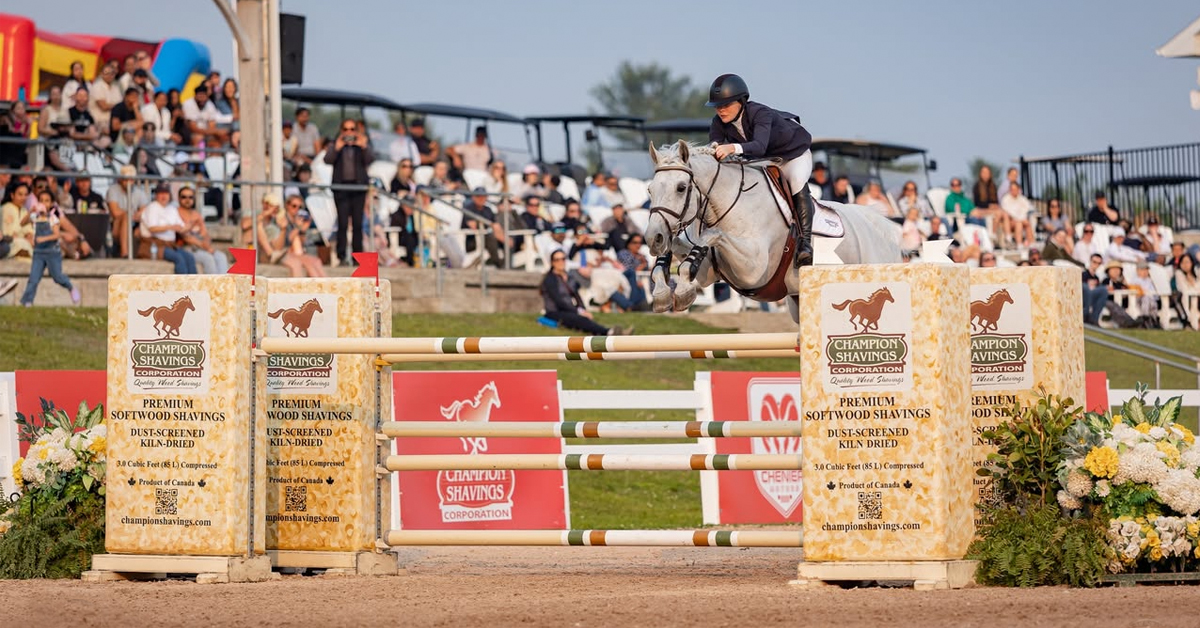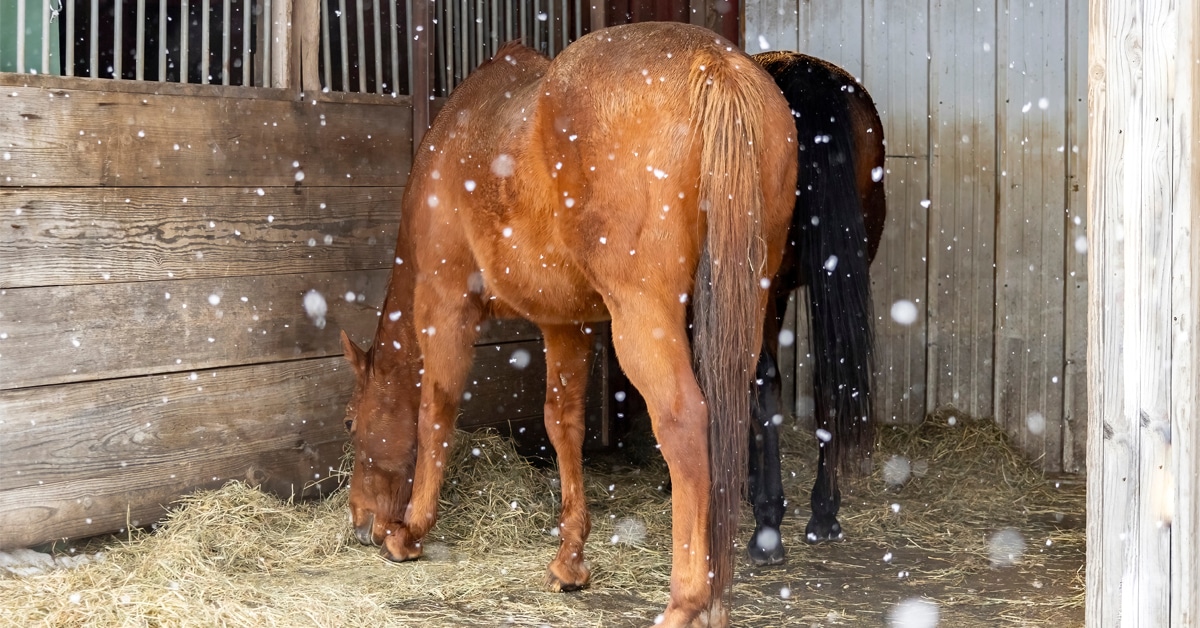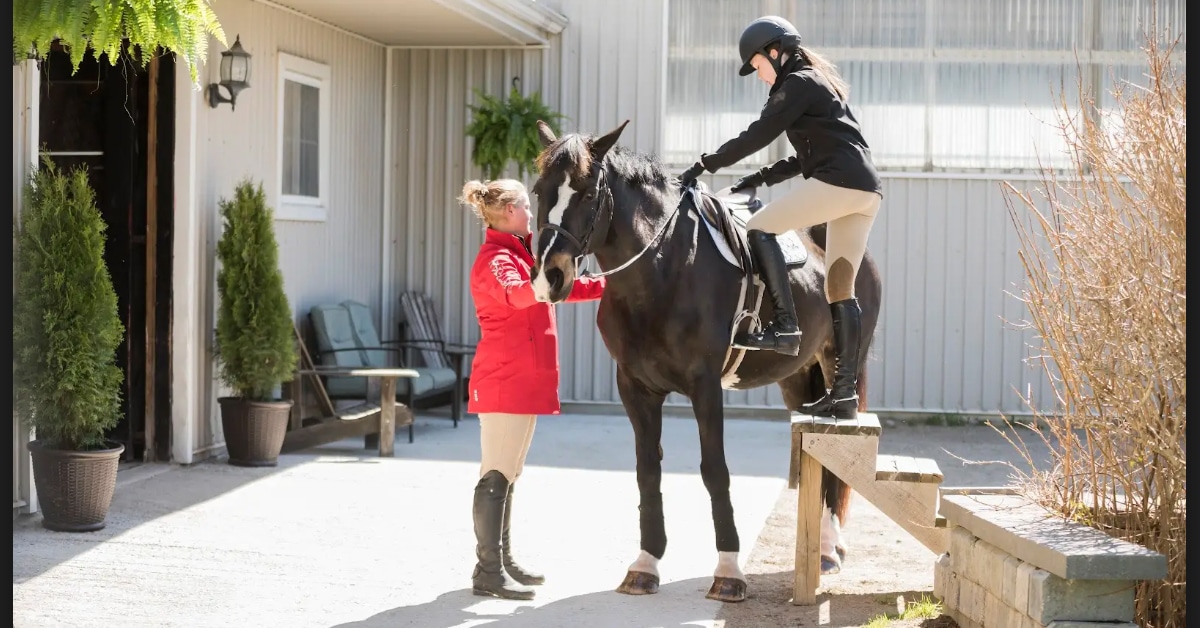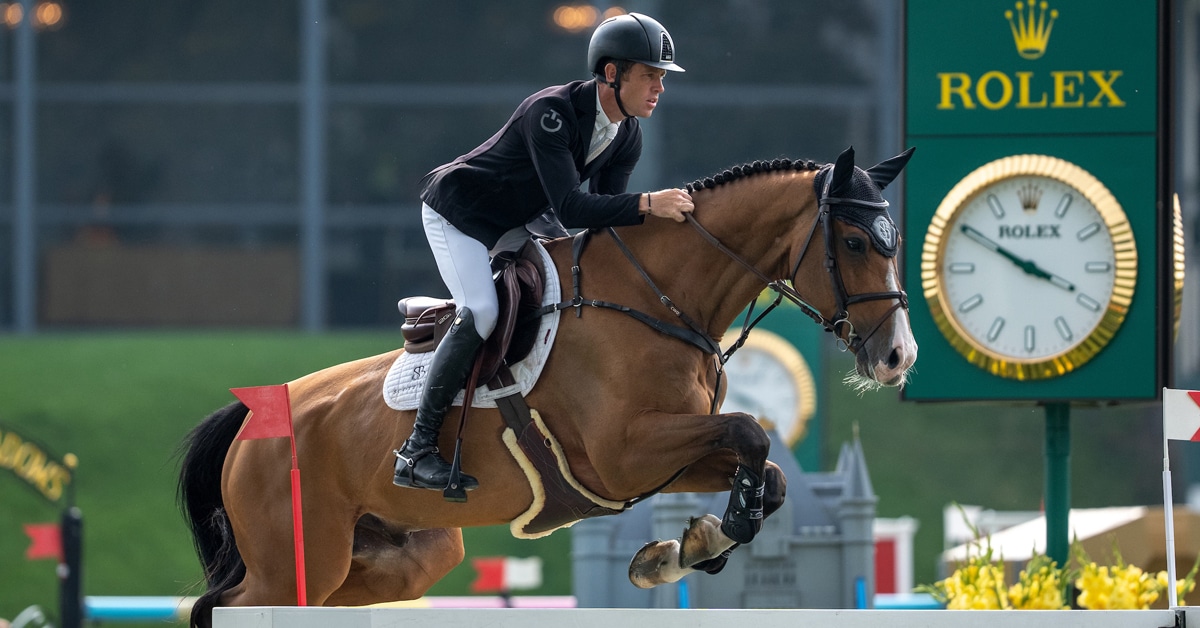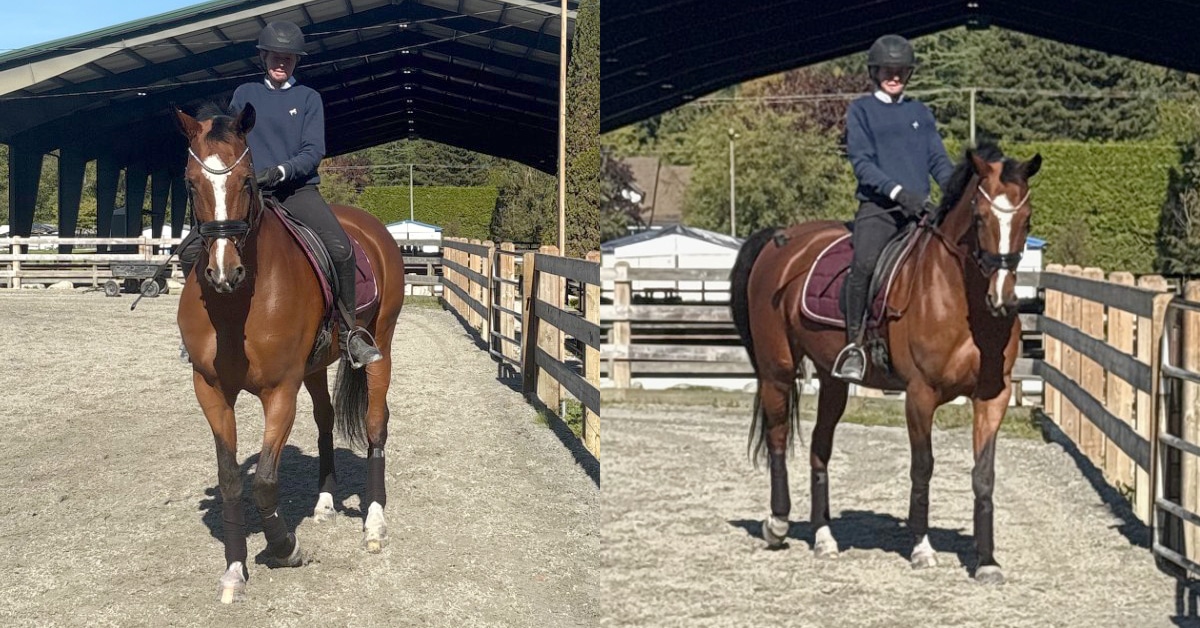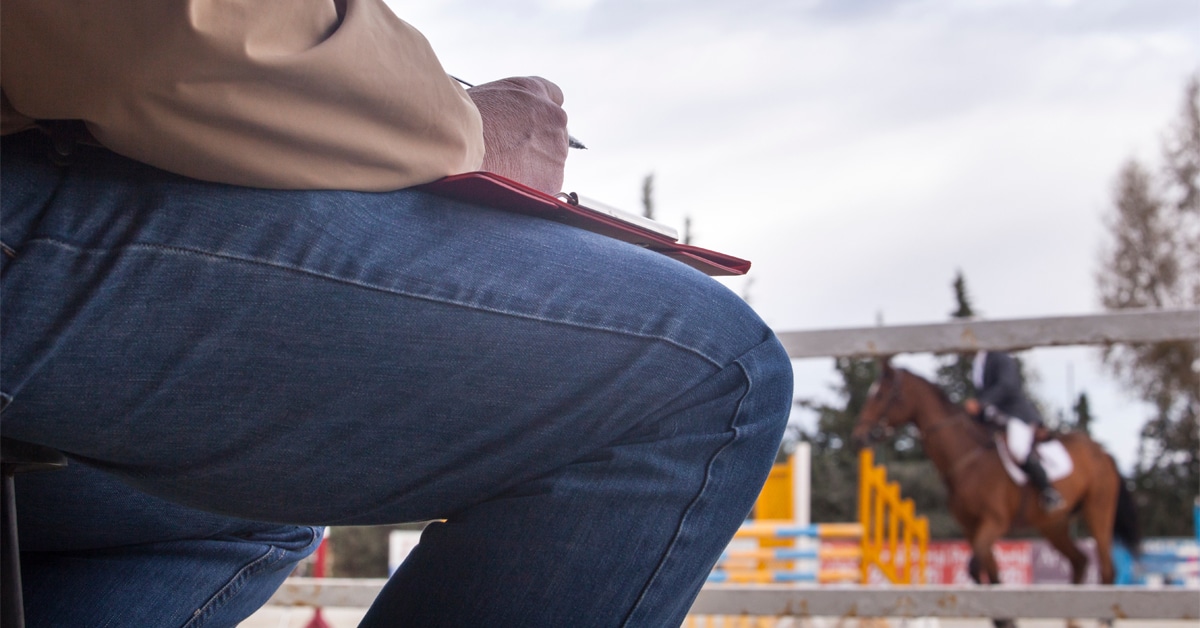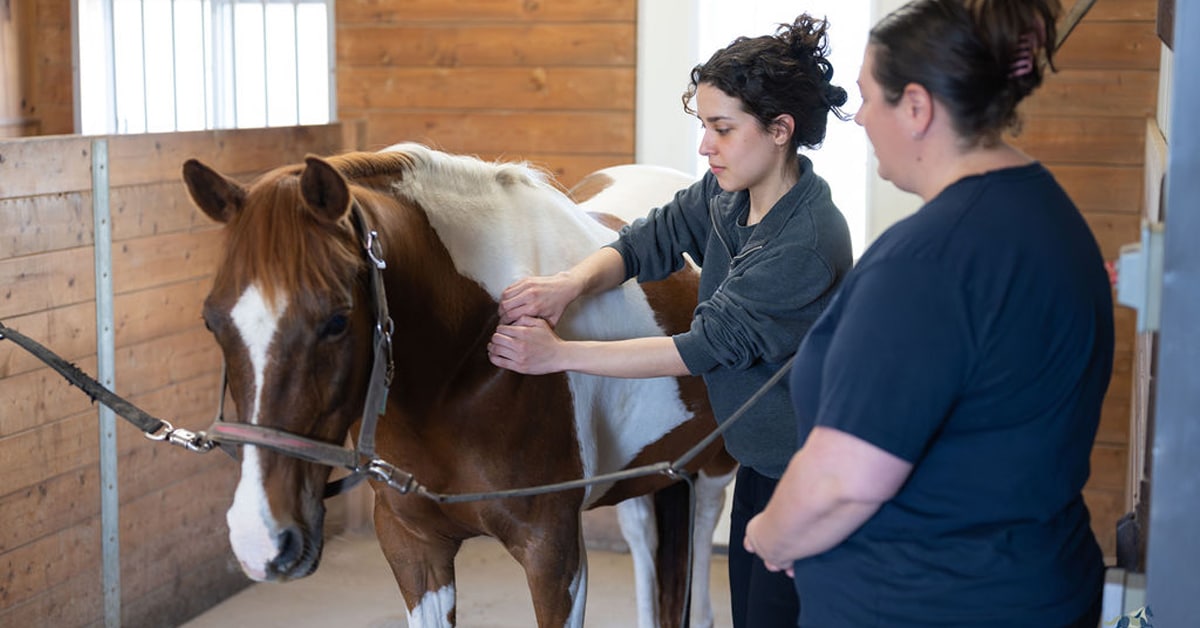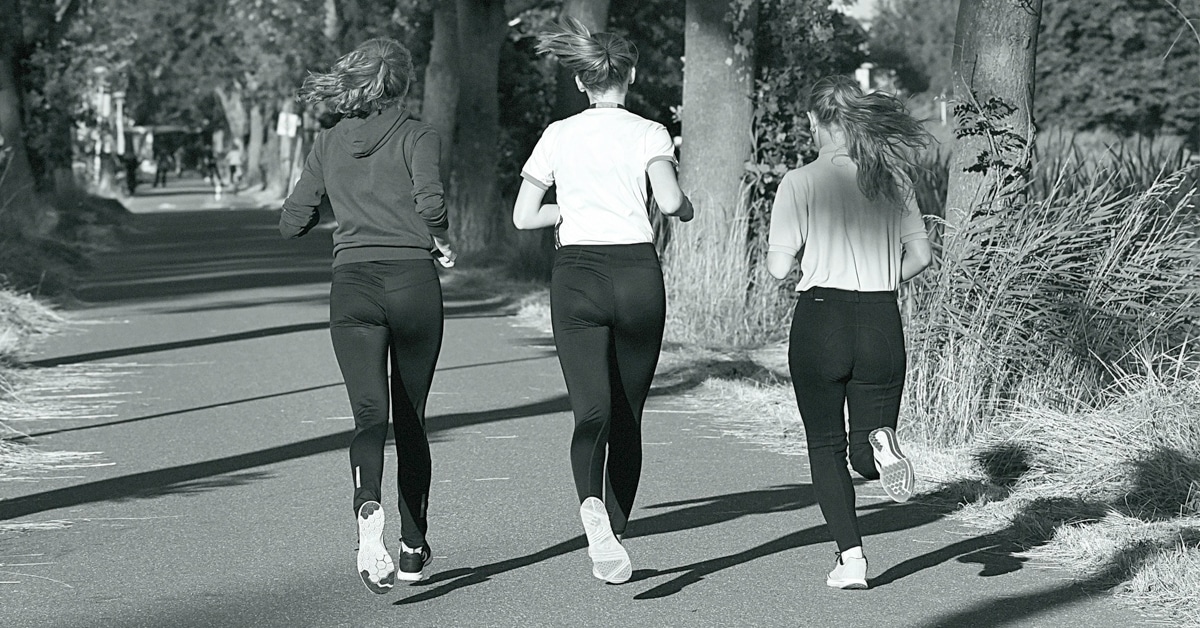The Basics of Fun
Jane Casselman’s Touch N’ Go Farms in Campbellville, ON, has been the benchmark of grassroots facilities since its inception in 1975. Casselman, a former president of the OEF, has worked closely with the provincial association to establish a program where professionals give clinics to her lower-level lesson students. “I want to provide an opportunity for the younger or just beginning riders – it’s important that not only the campaigning kids who have been exposed to this level of riding are offered these chances,” she explains. “It’s important to show the kids where you can go in the sport and to hear from these successful riders that they all started with up-down lessons.”
A founding member of the Trillium Show Circuit, Casselman has championed the progression through the levels of horse showing for all riders. Her wildly-popular Lollipop schooling shows allow younger riders and parents new to the sport to learn the ropes in an affordable and inviting venue. “It may look like chaos, but it’s not,” she laughs. “I started the series for the kids whose trainers were so busy on the weekends that they weren’t getting out as often as they should. I didn’t want any kids left at the barn. There is less of a need now for schooling shows, because you can take any level of rider to a rated show these days and find a division for them, but I think there is still room for the little kids to learn without the financial strain and competitive pressure of the “A” or Trillium circuit.”
Casselman estimates that over 50 per cent of her barn are returning clients with children of their own. “I find it so rewarding being able to watch people grow up, learn things and go out into the world. I’m lucky to often get them back and see what becomes of them. This place is a stepping-stone for people to establish themselves elsewhere. Many have done great things with horses; others have learned important life lessons. I feel a huge responsibility and I’m very proud of all of them.”
Casselman has observed a “thinning out” at the top levels of the sport lately, and that the pressures placed on children has increased to the point that they are expected to excel at several extra-curricular activities in addition to school work. This often doesn’t allow the time required to progress through the levels as “barn rats” or working students. ‘In previous years when kids rode, that’s all they did and they were always at the barn,’ she explains. The “now” generation encourages the kids to do a zillion things. The kids are so busy that it’s hard to find them hanging out at the barn like they once did. “ Her solution? ‘We have to make sure that this is the sport that sticks, and that’s up to whoever is running the lesson program.”
The success of her students and horses aside, Casselman’s lasting legacy in the sport will be of promoting an environment of learning, progression, and fun with horses. “The reason I’m in this is because I really love horses, and that’s the bottom line. What’s more fun than spending time with horses? That’s what I want to share with the kids. It makes me so happy, looking at the Lollipop shows and seeing all the ponies and the kids having fun – learning, but having fun.”
Leaving the Nest
When the Guertin family moved to Navan, ON, from Europe in 1970, they could not have imagined the effect they would have on the horse community for generations to come. Founder Claire Guertin, now 81, recognized a gap in the market for those wishing to learn horsemanship skills that more closely mirrored a European approach to learning the basics. She opened Centaur Riding School in 1973 and for 40 years has been offering riding lessons, camps, horse shows, and theory classes.
In 1989, Claire’s daughter Shirley took over the facility and continued to nurture the development of the grassroots riders. The German approach to learning has had a trickle-down effect with Centaur graduates, many of whom have since gone on to open their own facilities – or have come back to Centaur with children of their own. ‘We were very lucky that the riding school we went to in Germany had good teachers, good programs, and good school horses. We had so much fun and loved the learning,’ says Shirley Guertin.
“It’s really the horses that teach the values that we try to instill, and if we introduce people to horses in a safe and correct way the horses do their job,” she continues. “So many parents comment about how their children improve in so many facets of life just from riding. The kids learn compassion, responsibility; they learn to put their ego to the side and put their horses first. They learn hard work and sportsmanship through competition. The confidence the kids get is just amazing. We present them with life values that they don’t even know they’re learning.”
Guertin has noticed an alarming shift due to a society hell-bent on quick results – parents who want their children to jump around a course before they can even tack up properly. “It’s a different mindset now. People get away from animals and the farm and the country and these values are disappearing a little bit. It’s the easy way out and that seems to be what society wants these days. At Centaur we don’t cater to that one bit, even if it means losing a client, because I’m not interested in teaching that way.”
“The kids who have stuck through it and progressed through the years come back as mothers. They want their kids to have the same experience that they had. They understand that it’s a lifelong skill they’re learning, as opposed to turning the key and going for a ride.”
Guertin’s daughter, Danika, 22, looks to be the third generation of Guertins who will operate the riding school. “When my riding instructors from Germany came to visit us, I saw the pride and joy on their face because of what they had created through us. I see the same thing here after 40 years in business. If we’ve managed to instill the true love of horses and the desire to put them first, and can nurture enough people to keep the thing going, I think we’ve done our job.”
Community and Family
Established in 1988, Island 22 Regional Park is a publicly-owned horse park and cross-country training facility. It is funded entirely by grants, event fees, and donations, and maintained by a dedicated group of volunteers known as “The Society.”
The park and equestrian centre was conceived by local parents of Chilliwack, BC, who recognized the need for a safe place for their children to ride when a growing city forced them off their local trails. The group approached Horse Council BC and the Pony Club with their idea of a community horse park and with their support, took the proposal to the city of Chilliwack. The 132-hectare parcel of land is owned by the city of Chilliwack, and was at the time an overgrown park and boat launch. The group applied for and received provincial and federal grants, and with the enthusiasm of the community behind, it worked with district engineers to design a layout for the park and build a cross-country course. Riding rings can be rented to host clinics and events, and a season’s pass with unlimited usage is only $50 per truck and trailer.
Island 22 volunteers are primarily mothers and fathers whose children have long since completed their last event, but it is more than a blood tie that has bound this group together for the last 26 years. Andrea Meister-Li, secretary for the society, was only 13 when the first event took place. “I think the most important thing about the Society is that we are there for the love of a park that we believe is an important feature in our city,” she says. “In the beginning, it was the parents of a few of us who are now in the Society. There is only one member of the society who even occasionally events anymore; more than half have never ridden.”
Meister-Li estimates that 75 per cent of their volunteers during events are not horsey in the slightest, but some have kept coming back for the last 20 years. Island 22 closes off each event with a celebration that keeps the legend of the BC eventing community’s fondness for après-cross-country parties alive and well. “Hosting an event is so much work, it is stress that builds up to this huge sense of relief and accomplishment when that last horse drives off the property,” she laughs.
Island 22 relies heavily on the support of the local community and volunteers in the upkeep of the park. “We work very closely with the Fraser Valley Regional District and the City of Chilliwack. Due to the user fee layout of the park, it is very difficult for us to access many grants as a society. By working with the FVRD and promoting the park to other equestrian groups and even other non-horse users who can make use of the park facility, we are able to help the FVRD secure government grants that benefit the trails and maintenance of the facilities for its various users. We have some wonderful farmers that rent cheaply and donate for free their huge tractors and equipment for use. We continuously get breaks on gravel, lumber, logs, and all sorts of supplies that helps us keep our budget.”
Island 22 remains an inspiring tale of a community fighting to maintain the sport. Meister-Li admits that it takes time, patience and a lot of dedication. “Our society involves much more than organizing a yearly event. It requires patience in dealing with politics, and this is one of the most important factors. We cannot cut down a tree just because we think the tree is in the way; we need to ask permission and then have each tree inspected. Island 22 is just that, an island. It has a slough and a lake on three sides and a shifting river on the other. We spent much of this summer in meetings and negotiations with the city regarding the shifting of the dyke, which will chop off the back corner of the course. The red tape never ends, so we consider each year another accomplishment.”
The Latest
